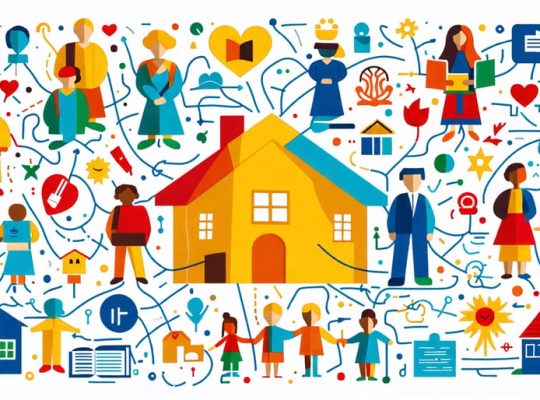Discover the transformative potential of play therapy and therapeutic play in nurturing your child’s mental well-being. While both approaches harness the power of play, they serve distinct purposes. Play therapy is a structured, therapist-led intervention that helps children process emotions, develop coping skills, and heal from trauma. In contrast, therapeutic play is a more informal, parent-guided approach that fosters emotional expression, problem-solving, and parent-child bonding. By understanding these differences, you can make an informed decision about the best path forward for your child’s unique needs. Join us as we explore the nuances of play therapy and therapeutic play, empowering you to support your child’s mental health journey with compassion and wisdom.
What is Play Therapy?

How Play Therapy Works
Play therapy is a structured, theoretically based approach that allows children to express their feelings, thoughts, and experiences through play. In a safe and supportive environment, a trained play therapist helps the child explore and resolve emotional and behavioral difficulties.
The process typically begins with an assessment to identify the child’s needs and develop a treatment plan. During play therapy sessions, the therapist provides carefully selected toys and materials that encourage self-expression and help the child work through challenges. The therapist observes and interacts with the child, offering guidance and support as needed.
Play therapy aims to help children:
– Develop coping strategies and problem-solving skills
– Improve communication and social skills
– Increase self-awareness and self-esteem
– Process and heal from traumatic experiences
– Reduce anxiety, depression, and other emotional difficulties
Through the therapeutic relationship and the power of play, children can gain insight into their feelings, learn new ways of interacting with others, and develop a greater sense of self. Play therapy is an effective intervention for a wide range of mental health concerns in children, promoting emotional well-being and fostering healthy development.
When is Play Therapy Used?
Play therapy is commonly used to address a wide range of emotional, behavioral, and mental health issues in children. It is particularly effective for children between the ages of 3 and 12, as they often struggle to verbalize their feelings and experiences. Some of the most common issues that play therapy can help with include anxiety, depression, aggression, trauma, grief, and social difficulties.
For children who have experienced traumatic events such as abuse, neglect, or loss, play therapy provides a safe and supportive environment to process and heal from their experiences. Through play, children can express their emotions, develop coping skills, and build resilience.
Play therapy is also beneficial for children with developmental delays, learning disabilities, or autism spectrum disorder. The therapist can use play to help these children improve their social skills, communication, and emotional regulation.
In addition to addressing specific issues, play therapy can be used as a preventative measure to promote healthy emotional and social development in children. By providing a space for children to express themselves and build positive relationships with a trusted adult, play therapy can help foster resilience and prevent future mental health challenges.
Ultimately, play therapy is a versatile and effective approach that can be tailored to meet the unique needs of each child and family.
Understanding Therapeutic Play
Principles of Therapeutic Play
Therapeutic play is a nurturing approach that uses playful activities to support children’s emotional well-being and development. At its core, therapeutic play aims to create a safe, non-judgmental space where children can express themselves freely and work through challenges in a developmentally appropriate way. Through carefully selected games, toys, and creative materials, children are encouraged to explore their feelings, thoughts, and experiences.
One of the key principles of therapeutic play is to meet children where they are emotionally and developmentally. By engaging in play activities that resonate with the child’s interests and needs, therapeutic play helps build trust, self-esteem, and a sense of control. It also promotes healthy coping mechanisms, problem-solving skills, and social-emotional learning.
Therapeutic play sessions are typically guided by a trained professional who understands the unique needs of each child. The focus is on creating a supportive, empathetic environment that allows children to process their emotions at their own pace. Through this gentle, child-centered approach, therapeutic play can help children navigate challenges, build resilience, and foster positive growth and development.

Therapeutic Play in Practice
Therapeutic play activities can be tailored to a child’s specific needs and interests. For example, a child struggling with anxiety might engage in deep breathing exercises using pinwheels or bubbles, helping them develop coping skills in a fun and accessible way. Role-playing with puppets or dolls can help children express their emotions and practice social skills, while art projects like drawing or painting can provide a creative outlet for processing difficult experiences.
Other beneficial therapeutic play activities include storytelling, which can help children make sense of their experiences and develop problem-solving skills, and movement-based activities like yoga or dance, which can promote physical and emotional regulation. Sensory play with materials like sand, water, or playdough can be calming and help children develop self-awareness and self-control.
By engaging in these activities with the guidance of a trained professional or caregiver, children can build resilience, enhance their self-esteem, and develop healthy coping mechanisms. Therapeutic play creates a safe, supportive environment where children can express themselves, process their experiences, and learn valuable life skills that will support their ongoing mental health and well-being.
Choosing Between Play Therapy and Therapeutic Play

Factors to Consider
When considering play therapy or therapeutic play for your child, it’s essential to take into account their age, the specific issues they are facing, and the severity of their symptoms. Younger children, typically those under 12, may be more receptive to play therapy as it aligns with their natural way of expressing themselves and processing emotions. However, older children and adolescents can also benefit from play-based interventions, especially when combined with other age-appropriate techniques.
The specific issues your child is dealing with will also play a role in determining the most suitable approach. Play therapy can be particularly effective for children who have experienced trauma, loss, or significant life changes, as it provides a safe space for them to explore and work through their feelings. It can also be helpful for children struggling with anxiety, depression, or behavioral challenges.
The severity of your child’s symptoms is another crucial factor to consider. If your child is experiencing mild to moderate difficulties, therapeutic play within the context of a supportive home environment may be sufficient to foster emotional growth and resilience. However, if your child is grappling with more severe or complex mental health concerns, professional play therapy sessions with a trained therapist may be necessary to address their child’s mental health needs.
Ultimately, the decision between play therapy and therapeutic play should be made in consultation with mental health professionals who can assess your child’s unique situation and provide personalized recommendations. By taking into account your child’s age, specific issues, and symptom severity, you can make an informed choice that best supports their emotional well-being and overall development.
Consulting with Professionals
When it comes to choosing between play therapy and therapeutic play for your child, it’s essential to consult with professionals who can provide personalized guidance. Therapists specializing in child mental health can assess your child’s specific needs and recommend the most appropriate approach. They can also explain the differences between these mental health treatments for kids in greater detail and answer any questions you may have. Additionally, your child’s pediatrician can offer valuable insights based on their understanding of your child’s overall health and development. Don’t hesitate to reach out to these experts for support and advice as you navigate this important decision. Remember, you’re not alone in this process, and seeking professional guidance can help ensure that your child receives the care and support they need to thrive.
In conclusion, understanding the differences between play therapy and therapeutic play is crucial for parents, teachers, and healthcare professionals seeking to support children’s mental health. While both approaches harness the power of play to help children express themselves, process emotions, and develop coping skills, they differ in their structure, goals, and the level of training required for facilitation. Play therapy is a more structured, goal-oriented approach led by a trained mental health professional, while therapeutic play can be more flexible and may be facilitated by a wider range of adults in a child’s life.
When selecting the right therapeutic approach for a child, it’s essential to consider their unique needs, challenges, and preferences. Factors such as the child’s age, developmental stage, mental health concerns, and individual personality should all be taken into account. Consulting with a mental health professional can provide valuable guidance in making this decision.
Ultimately, by choosing the most appropriate therapeutic approach for each child, we can help them build resilience, strengthen their emotional well-being, and foster healthy development. Investing in children’s mental health through play therapy or therapeutic play can have a profound and lasting impact on their lives, setting the stage for a brighter, more fulfilling future.







